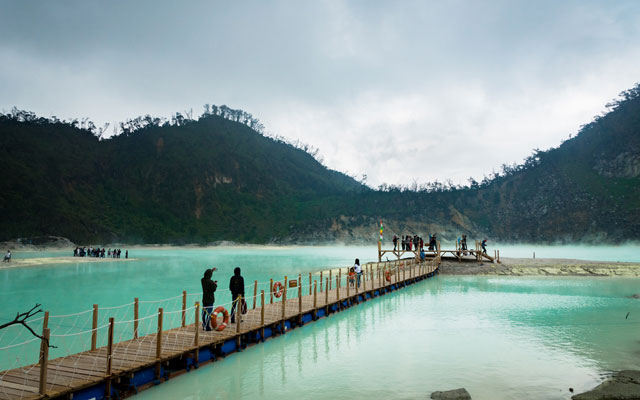A national vaccine rollout has boosted Indonesians’ confidence to travel domestically in the second half of the year, but the majority will shun long-weekend travel to avoid the tourist crowd on their getaways.
That is among the findings of Inventure-Advira’s new report titled Indonesia Industry Outlook 2nd Semester, 2021: Consumer Megashifts Post Vaccine.

The report conducted in mid-June to find out trends across 10 major industries, including tourism, hospitality and F&B, in the country also showed that more Indonesian travellers were seeking out CHSE-certified facilities and that the demand for tourism villages is on the rise. CHSE certification is given to destinations that have fulfilled standards of cleanliness, health, safety and environmental sustainability.
Yuswohady, managing partner of Inventure, said: “Before the pandemic, the people’s interest in spending long weekends travelling was very high. The situation has changed post-pandemic. Our survey showed that 71 per cent of respondents would avoid travelling during such period, even if they have been vaccinated, for health and safety reasons.”
He said that the shift towards remote working and learning means that holidays don’t have to be reserved for long weekends as employees can work from anywhere and children can learn from anywhere. Besides, the government has come up with the Work from Bali programme to encourage government staff to work remotely from Bali, while also promoting workations at destinations such as Yogyakarta, Lombok and Labuan Bajo.
The survey also revealed that 83 per cent of respondents would opt to holiday at tourism villages, which boast nature, eco, wellness and adventure offerings.
“Travellers (prefer to) visit destinations (with) nature offerings (in the wake of the pandemic). That’s why hotels located in green areas such as Labuan Bajo have become more interesting,” Maulana Yusran, secretary general of the Indonesia Hotel and Restaurant Association, said at a conference to launch the e-book containing the survey findings.
Resultantly, city hotels are suffering and have had to resort to offering staycation and self-isolation packages to keep their businesses going, according to Maulana.
He urged the government to allow meeting spaces to continue operating amid the current social restrictions as business events contributed 30-40 per cent to city hotels’ revenue. Moreover, the Inventure-Advira survey showed that 60 per cent of respondents wanted business events to be held in-person in the post-vaccination period.
Maulana said: “Having received CHSE certificates mean that hotels have implemented all the required protocols to run an event, so there is no need for the government to bar events (as part of Covid-19 restrictions).” He also noted that traditional markets, which tend to be crowded and adhere less to protocols, are allowed to remain open during this period.
When it comes to F&B establishments, CHSE certified (79 per cent) and outdoor restaurants (77 per cent) serving healthy menus (72 per cent) will be top picks among customers, according to the survey.
Yuswohadi said that restaurants will be competing over the next few months to offer new operational models in response to hygiene and safe distancing concerns alongside greater demand for low-touch options.
The survey also noted that consumers who had become used to ordering F&B online during the social restrictions would continue this habit (71 per cent) even when restrictions ease.
Rex Marindo, founder of Foodizz, projected rising demand for food delivery services will attract more restaurants to adopt cloud-kitchen models, focused on serving customers online without providing dine-in facilities.




















